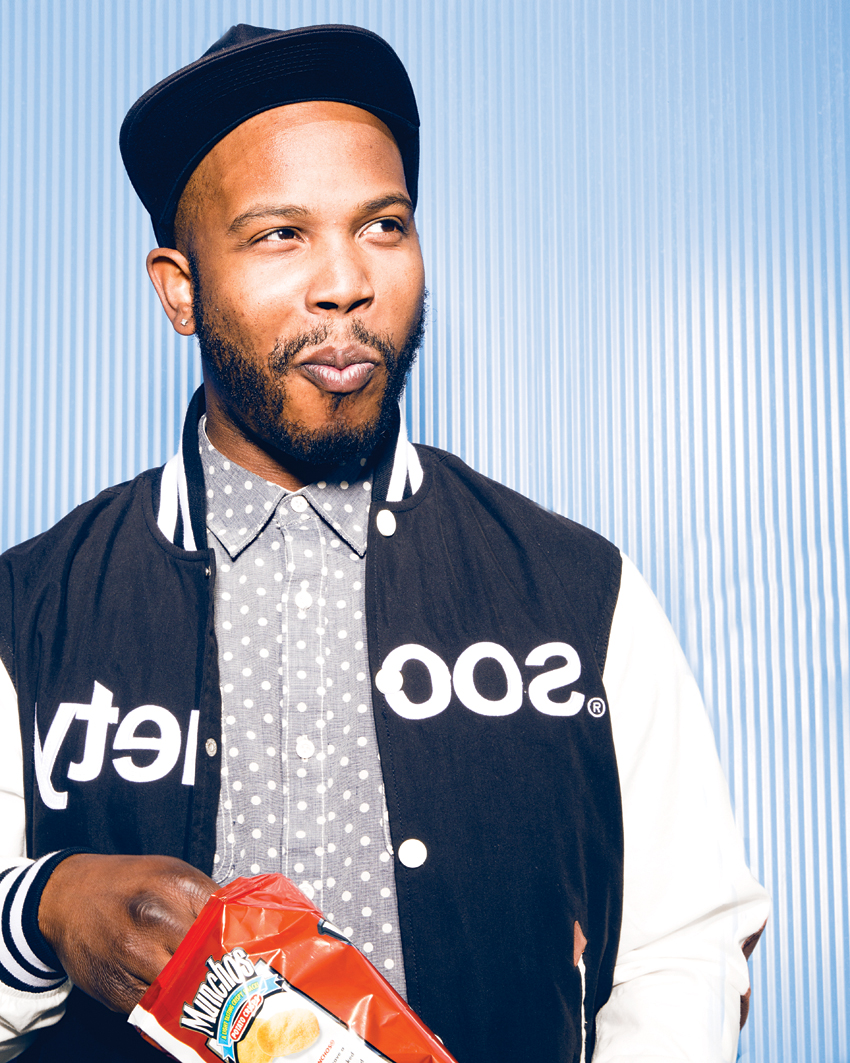Q&A: Salim Akram of Bad Rabbits

Photo by Scott M. Lacey
You guys have a press release describing your music as a “post-R & B futuristic funk punk assault.” Okay, what’s that mean?
We’ve had all different kinds of terrible ways to describe the band—R & B, funk, soul, hip-hop, rap, whatever you could think of. But I guess in terms of marketability purposes, we’ve been just calling it “post-R & B.” We’ve also been referring to it as the American dream, based on the backgrounds of the band members. There’s a black dude, an Argentinean guitar player, our drummer’s Indian, our singer is from Ghana, and our bass player is Jewish. Three of the guys are first-generation Americans and, overall, all of us kind of have the same middle-upper-class family upbringing.
Has the group’s diversity influenced your music at all?
I mean, it’s definitely not like it was intentional. I went to day camp with Sheel when we were 10, and everybody else met in college. Our overall sound—I don’t think it necessarily has a lot to do with the background of the members. Growing up, we were all really deeply into R & B, that’s the consistent factor.
Other than that, how similar are your musical backgrounds?› A lot of us don’t have a traditional music background. Some of us can read music, others can’t. People come up and are like, Hey, I like how you did this transition into this sound. And we’re like, Cool, we just got together over a bottle of whiskey for the past three months and wrote a record that we all like. Not to get it twisted—we definitely take a lot of pride, and we’re our worst critics.
The Herald just called you the coolest band in Boston, which can’t hurt. How did you guys start to get a big following in town?
For a while, we were throwing these underground shows, where it was 150, 200, 300 kids. They were under the radar, but they were always hyped, and people were trying to get in and couldn’t, that kind of thing. After doing a bunch of those shows throughout the city, it translated into a ticket. So when we actually did a club show, the demand was there.
You guys played the kickoff event for John Connolly’s mayoral campaign. I’m guessing that was your first show at the Omni Parker House.
When we retweeted the RSVP link, the hotel got nervous because the list shot up with all these names from Allston. It turned out to be really fun. The people who were obviously there for the Connolly portion of the event, they embraced what was going on. It was one of these things where you could feel the tension brewing, but everybody ended up happy to be a part of it.
So is the band getting politically involved?
I mean, you won’t see us on the front of the newspaper talking about politics, but moving forward progressively is something that we look for.
Is playing Boston Calling a big deal for you?
We’re definitely honored and humbled to even be considered for it. It’s good for the city. This is putting our entire city on the map to make people, when they see this lineup, want to fly from New Orleans or L.A. instead of going to Coachella or the Voodoo festival.
Can it really get that big?
Logistically, I don’t think it could ever be as big as Coachella. But I think it’ll lend itself to Boston being known for something other than sports. It’s cool to have Boston actually get a little bit of notoriety for something music-related other than a band blowing up and then moving to New York.
I’ve always thought of City Hall Plaza as a bit of a windswept dust bowl.
You know, our Masshole nature is to complain about everything but not necessarily have a better solution. Hopefully this will go off well, and it will be proven that something this massive can happen in Boston without, you know, riots and chaos.
I’ve read you guys say that your live performance sounds different than what you hear on the record. So what should people expect?
I think people just like to see us having a good time. We’re not a band that stares at the floor and makes sure we hit every single note 100 percent correctly. You come to a show, it’s pretty evident that we have a fun time doing what we do, and we don’t take ourselves too seriously.


